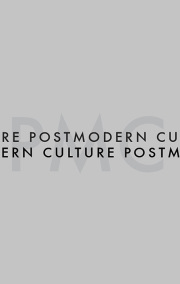Article
Misidentification’s Promise:
The Turing Test in Weizenbaum, Powers, and Short

Beginning with a discussion of the anthropomorphic metaphor in Turing’s article, “Computing Machinery and Intelligence,” and in contemporary debates that surround the article’s interpretation, this essay argues that the anthropomorphic imagination is a crucial organizing force in theoretical discussions about the Turing Test, and in certain sub-fields of AI that are influenced by Turing’s work. Following this discussion of the Turing test, this essay continues to examine the anthropomorphic imaginary through three Turing sites: Joseph Weizenbaum’s natural language artificial intelligence ELIZA, Richard Powers’ novel Galatea 2.2, and Emily Short’s work of electronic literature, Galatea. In these works, as in Turing’s article, the anthropomorphic imaginary highlights not the rigidity and inviolability of the categories human and (not-human) machine, but their fundamental fluidity and instability.